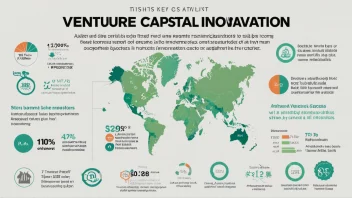Artificial Intelligence (AI) has emerged as a transformative force in modern scientific research, reshaping how scientists collect, analyze, and interpret data. The ability of AI algorithms to process vast amounts of information quickly and accurately is revolutionizing various fields, from medical research to environmental studies. In this article, we will explore how AI is being utilized in scientific studies, highlighting its benefits, challenges, and the future of AI in research.
At its core, AI enhances data analysis capabilities. Traditionally, researchers would sift through mountains of data manually, a process that is not only time-consuming but also prone to human error. AI, particularly machine learning, enables researchers to automate this process, allowing for real-time analysis and the identification of patterns that may not be immediately apparent. For instance, in genomics, AI algorithms can analyze genetic sequences to uncover mutations linked to diseases, significantly speeding up the pace of medical discoveries.
Moreover, AI is playing a crucial role in predictive modeling. Scientists are using AI to develop models that can forecast outcomes based on existing data. This application is particularly evident in climate science, where AI helps predict weather patterns and assess the impact of climate change on various ecosystems. By creating accurate models, researchers can devise strategies to mitigate adverse effects and adapt to changing environmental conditions.
AI's integration into research is not without challenges. Data privacy concerns are paramount, especially in fields like healthcare, where sensitive information is involved. Additionally, the reliance on AI raises questions about bias in algorithms and the implications of automated decision-making. Researchers must ensure that AI systems are transparent and that their findings can be interpreted by humans, maintaining a balance between technological advancement and ethical considerations.
Looking ahead, the potential for AI in scientific research is immense. As technology continues to evolve, we can expect more sophisticated algorithms capable of tackling complex problems across various fields. Collaboration between computer scientists and domain experts will be essential in harnessing AI's full potential. Ultimately, the integration of AI into scientific research promises to accelerate discovery and innovation, paving the way for breakthroughs that could change our understanding of the world.
In conclusion, AI is revolutionizing scientific research by enhancing data analysis, improving predictive modeling, and facilitating faster discoveries. While challenges such as data privacy and bias remain, the future of AI in research is bright. As we continue to navigate this technological landscape, it is crucial to prioritize ethical considerations and foster interdisciplinary collaboration, ensuring that science remains a human-centered endeavor.
Revolutionizing Research: AI's Role in Science
Discover how Artificial Intelligence is transforming scientific research by enhancing data analysis, improving predictive modeling, and driving innovation.






